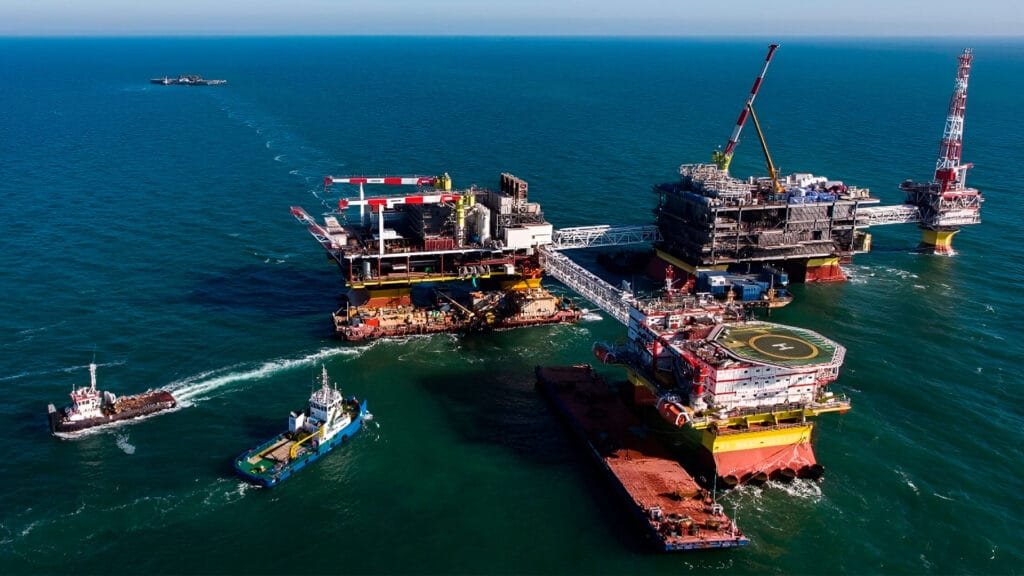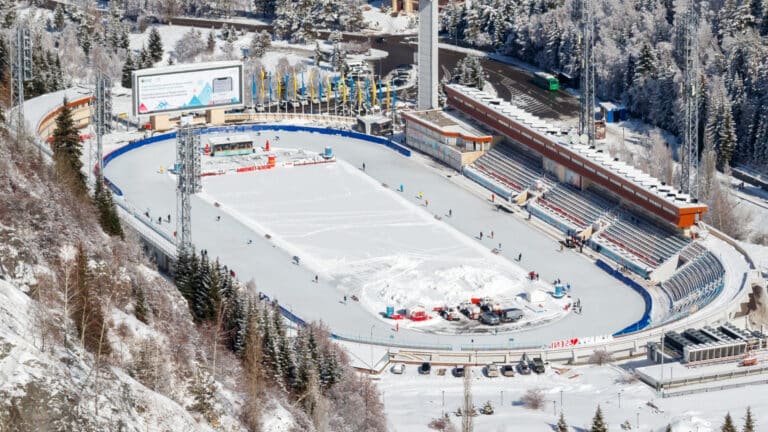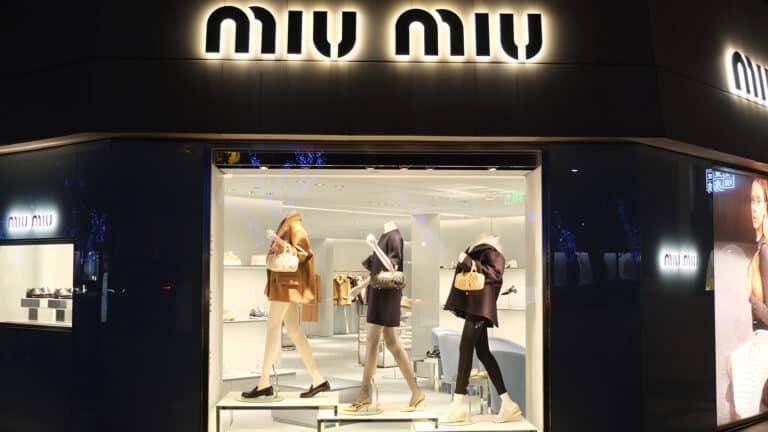
According to Andrey Romanov, project manager and deputy managing director of Kalamkas-Khazar Operating, LLP (KKO), a joint venture of KazMunayGas (KMG) and Lukoil, Front-End Engineering and Design (FEED), is set to begin in September 2024. The final investment decision is expected to be made by the fourth quarter of 2025, with offshore platform construction starting in 2026 and dredging of the lake bed scheduled for 2027-2028.
The project started in 2023 and will last until 2067, with an expected peak oil production of 4 million tons per year. Capital expenditures for the projects are estimated at $6 billion, while 2,000 new jobs will appear during the initial stage of field development and 300 permanent jobs are expected to be created once the facility commences its regular operation.
On Feb. 9, 2023, KazMunayGas and Lukoil signed a purchase agreement for a 50% equity stake in Kalamkas-Khazar Operating, a subsidiary of KMG. This subsidiary is authorized to extract hydrocarbons from the Kalamkas Sea, Khazar and Auezov subsoil areas located in Kazakhstan’s section of the Caspian Sea.
According to last year’s audited financial statements from KMG, KKO was re-registered on Sep. 11, 2023, after the parties fulfilled the conditions set in the sale and purchase agreement. Following this transaction, KMG lost control over KKO, selling 50% of its equity stake for $200 million. The agreement included a provision for a potential price adjustment of up to $100 million as additional compensation, upon certain conditions being met. KMG recognized this potential compensation as a financial asset, evaluated at a fair value of $29 million, classified within other long-term financial assets in the consolidated statement of financial position.
On Sep. 21, 2023, Lukoil paid a $200 million monetary reward. The auditor determined the fair value of investment in KKO by KMG at around $188 million.
In April, Kuanysh Kudaibergenov, deputy chair at KMG, highlighted that having Lukoil as a strategic partner on the Kalamkas Sea and Khazar project made it possible to restart the activities.
In September 2021, President Kassym-Jomart Tokayev announced the commencement of operations at the Kalamkas Sea and Khazar Fields due to the gradual depletion of existing Kazakhstani oil deposits and a planned production cut by 2030. He referred to Russian Lukoil as a strategic partner in this initiative, with the initial investment plan set at approximately $5 billion.
Kalamkas-Khazar Operating has been established specifically for the Kalamkas Sea, Khazar and Auezov oil deposits. In February 2023, KMG and the Ministry of Energy signed an improved model contract authorizing hydrocarbon production at the site. The project implementation implies payment of a subscription bonus of $32 million, attraction of direct investments in the amount of more than $6 billion and creation of about 2,000 new jobs at the initial stage of project development.
In addition to Kalamkas-Khazar Operating, KMG and Lukoil are partnering on four other projects. In 2019, the Russian company entered into a contract for exploration and production of hydrocarbons at the Zhenis Block, gaining a 50% share in the joint venture with KMG, and in the summer of 2021 signed an agreement to acquire 49.99% at the Al-Farabi project. Both blocks are situated in the Kazakhstan-controlled area of the Caspian Sea, near the Tsentralnoye oil and gas field, where Lukoil and Gazprom Neft each hold a 25% stake, and Khvalynskoye field jointly developed by KMG and Lukoil, which owns a 50% stake in the project.
Lukoil and KMG are also considering the formation of a consortium between their subsidiaries, KMG Engineering and Lukoil Engineering. This collaboration might facilitate cooperation in the spheres of engineering, research and development support not only for the Kalamkas Sea and Khazar projects but also for other operational activities.
The controlling shareholder of KMG is the state-run Samruk-Kazyna National Welfare Fund, which holds 67.42% of the oil company shares. Of this, 20% belongs to the Ministry of Finance, while 9.58% is held by the National Bank. The remaining shares, sold at approximately $17 each during the initial public offering (IPO) on Kazakhstan’s stock market, are owned by minority shareholders.













